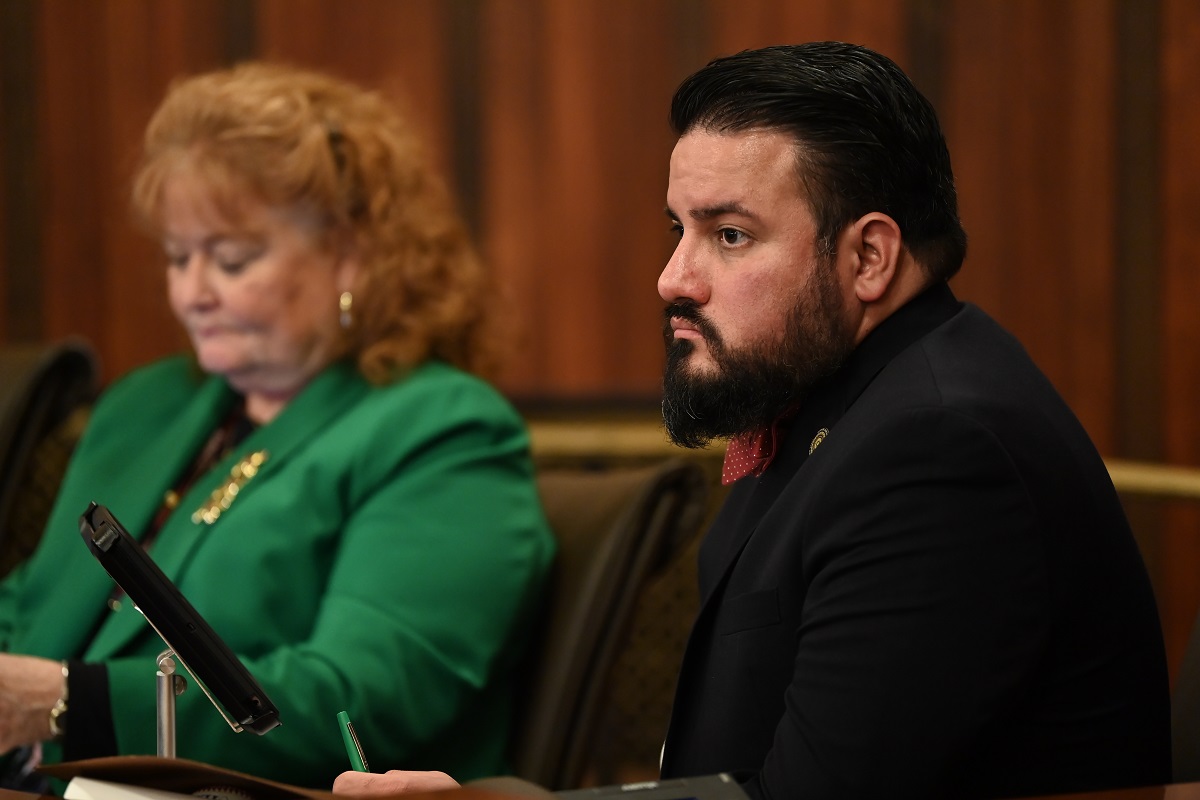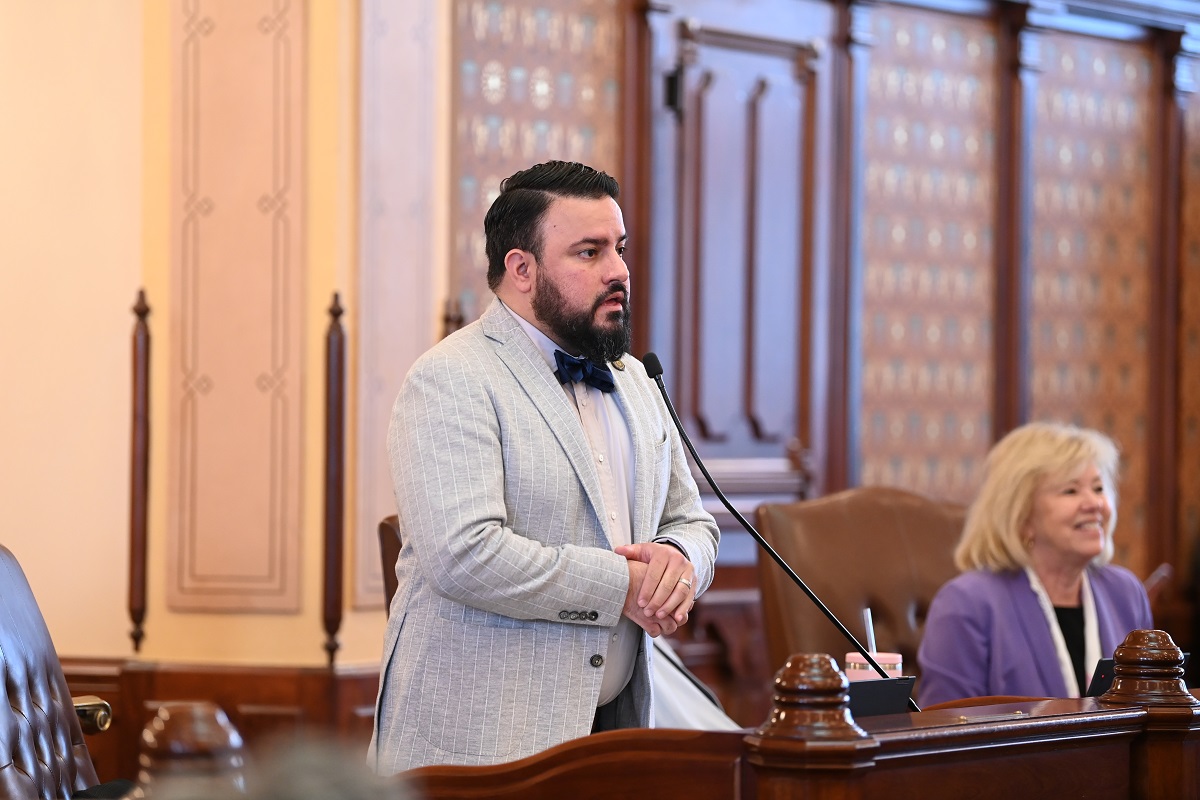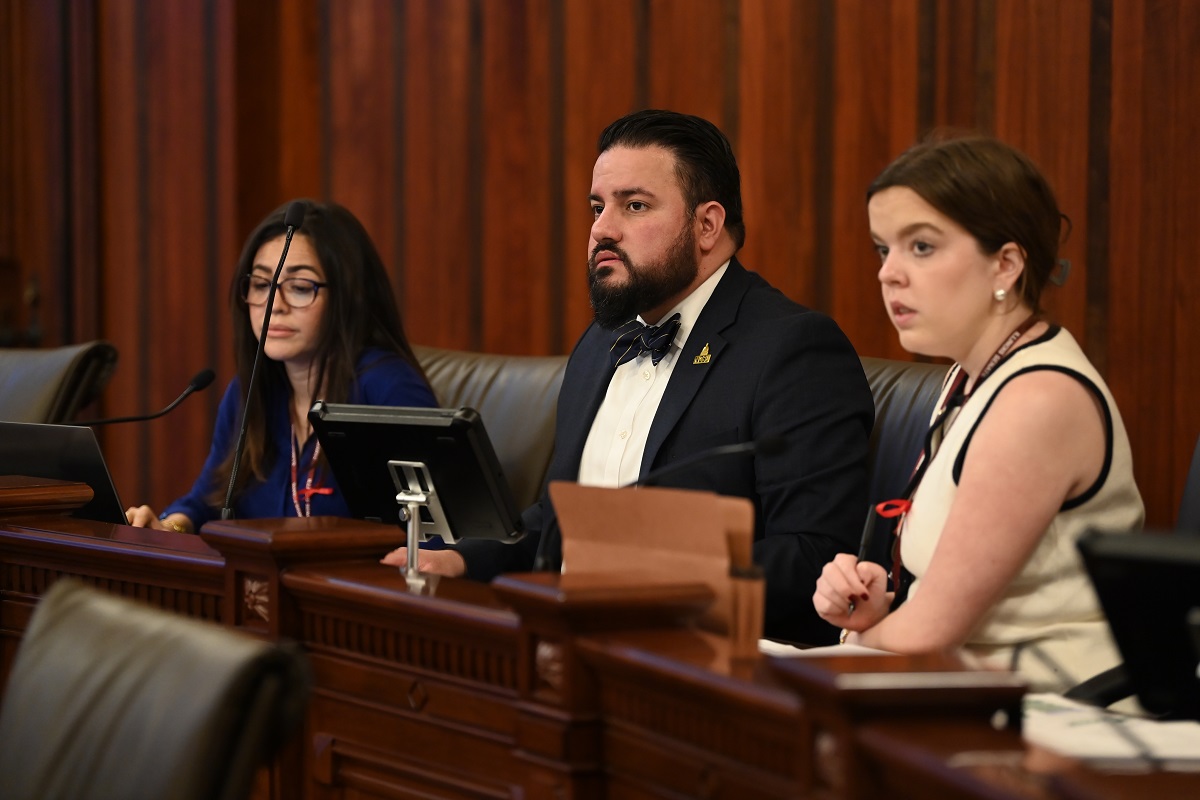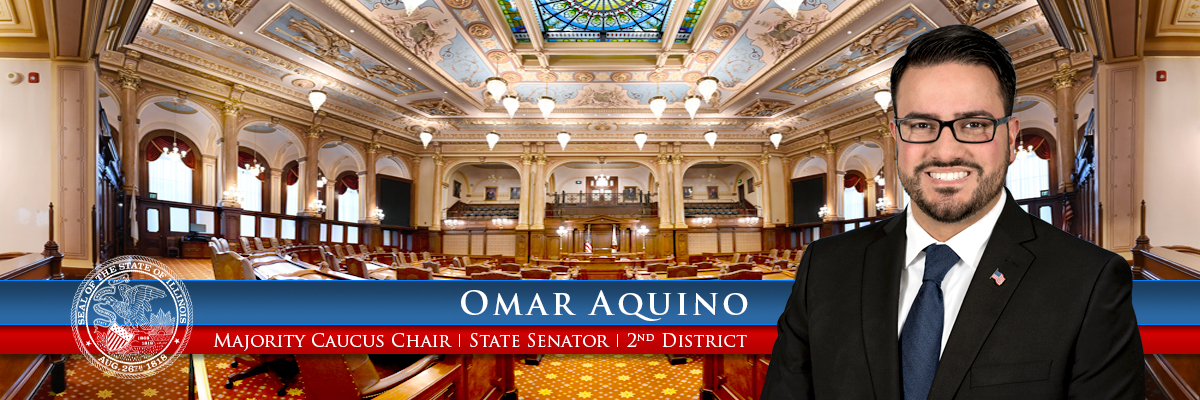- Details
- Category: News

SPRINGFIELD – State Senator Omar Aquino championed a measure to fortify representation for non-citizen Cook County residents undergoing immigration proceedings following reports of rampant immigration enforcement and alleged due process violations.
“As immigrant communities are grappling with shifting federal policies, we must adapt to ensure there is no lapse in access to counsel,” said Aquino (D-Chicago). “Families deserve to know that this resource is available and reliable despite changes happening at the federal level.”
Read more: Aquino bill securing immigration representation for Cook County residents passes Senate
- Details
- Category: News

SPRINGFIELD –An initiative sponsored by State Senator Omar Aquino to expand loan options for student loan borrowers passed the Senate Thursday.
“As the cost of living continues to rise, it is critical that we provide students with an economic relief tool to help alleviate the often overwhelming burden of student loan debt,” said Aquino (D-Chicago). “Providing borrowers with additional loan options and lower interest rates will help keep money in their pockets to put toward other needs.”
Read more: Aquino bill to ease student loan burden passes Senate
- Details
- Category: News

SPRINGFIELD – Amid rampant immigration enforcement and alleged due process violations for immigrants across the country, State Senator Omar Aquino championed a measure to fortify representation for non-citizen Cook County residents undergoing immigration proceedings.
“The federal administration has targeted immigrant communities to instill fear and chaos in our neighborhoods, but Illinois is pushing back,” said Aquino (D-Chicago). “We are a welcoming state and we believe in the right to due process for all, regardless of a person’s immigration status.”
Read more: Aquino bill securing representation for non-citizen Cook County residents advances
More Articles …
Page 4 of 15








